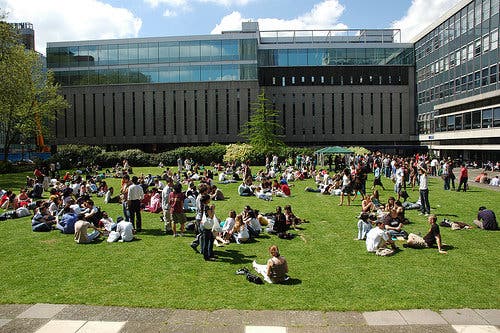The Ivory Tower
While game developers worry about next week's deadline, are academics building gaming's long-term future?
As the morning wears on, a stark contrast begins to emerge between the two groups of speakers. The game developers are at pains to point out that their jobs involve little in the way of high-end research or implementation of complex, graceful systems. An AI programmer from Creative Assembly bluntly observes that from an academic perspective, the AI he writes for games is downright disappointing in its simplicity; listing some of the academic AI solutions which he'd love to be writing instead, he half-jokes that he's not even sure what they actually mean.
The message is simple - developers are constrained by the need to make things work on cheap, mass-produced, £150 boxes that sit under televisions, to do so in remarkably little time and on fairly shoestring budgets, and then to wake up the next day and start it all over again. The breathing space required to research new concepts and create elegant solutions for problems simply isn't there; no developer will pay its staff to sit around thinking about next-gen AI when the current-gen AI could still be tweaked to within an inch of its life.
From the academic presentations, a whole different world emerges. The speakers talk in terms of long-term research projects spanning years, if not decades, of intellectual investigations. These investigations are undertaken to find solutions to tough problems for the simple reason that the problems are tough, and thus interesting. Their research isn't necessarily entirely about games, but it would take a dull imagination indeed not to see the potential of advanced robotic vision, or software that adapts itself to the user's psychology, in future videogames.

It's fairly obvious that these two sides of the coin complement each other pretty well - the commercial business with little time for research, and the research institutions whose work may well carry the seeds of the technology and techniques that power the games of the future. Yet here is a side of the relationship between games and academia about which we hear little. For all the interesting research it's doing, Imperial is hardly a name that springs to mind when you think of videogames.
That's probably because like most of the country's top universities, Imperial doesn't offer any degrees focused on games. Instead, it has added games-related content to its existing, more traditional courses, and has sought to work with games companies to drive forward research and engagement.
At lunchtime, I sit down with Professor Paul Kelly and Doctor Simon Colton, two of the men spearheading the university's involvement with games.
"We have extremely strong research and education in areas which are massively applicable to games," explains Colton, "But we don't necessarily use games as our basis."
"Simon, on some days, might admit to doing research into games, but actually the heart of what he does is an intellectual investigation into what it means for a computer to be creative," says Kelly.








